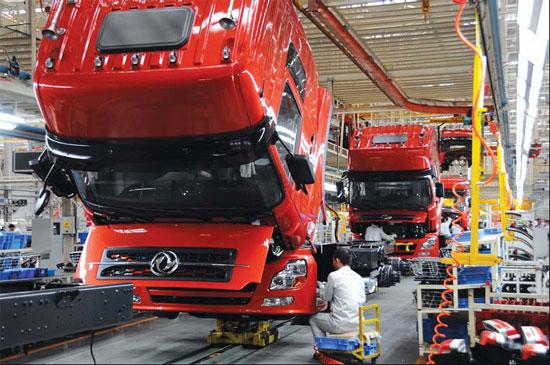BEIJING, March 2 (Xinhua) -- China's factory activity expanded faster than expected in February as domestic and export demand picked up.
The manufacturing purchasing managers' index (PMI), which gauges conditions at factories and mines, came in at 51.6 in February, above the 50 boom-or-bust line for the seventh month, suggesting that industrial activity remains buoyant.
A private PMI report, which focuses on smaller manufacturers, also showed signs of recovery, hitting 51.7, up from 51 in January.
The excavator machinery market may give some insight into the recovery.
Sales of excavators rose more than 50 percent year on year in January despite the Spring Festival holiday falling in the month. The sector has averaged over 70 percent year-on-year growth for several months and February is expected to follow the same pattern, according to GF Securities.
In addition, sales of heavy duty trucks are nearing a six-year high.
Excavator machinery is a barometer of new infrastructure and strong growth indicates that the economy could expand steadily in the first half of this year, according to Shen Jianguang, chief economist with Mizuho Securities Asia Limited.
Rail freight volume rose for the sixth month in January. Corporate profits, cargo volume and machinery sales are all sensitive to market changes and difficult to whitewash, Shen added.
The National Development and Reform Commission (NDRC) approved 18 fixed asset investments (FAI) with a total value of 154 billion yuan (22 billion U.S. dollars) in January, lower than the 184 billion yuan approved in December but higher than the 2016 monthly average of 142 billion yuan.
In addition, over 11,000 public-private partnerships had been registered by the end of last year. The majority are municipal works, transport and other infrastructure projects.
Property investment might slow due to increased regulation, but any slowdown could be cushioned by infrastructure investment, Shen pointed out.
FAI volume rose 7.9 percent year on year to 61 trillion yuan in 2016 and is likely to hit 65 trillion yuan this year, stoking concerns of a similar stimulus to 2008. A senior NDRC official dismissed these worries on Wednesday saying that China will not flood the economy with government money as it pursues more stable, healthy economic growth.
Stimuli are used to prop up weak demand in special circumstances, but FAI volume is the aggregate rather than new investment and includes investment from both public and private sectors, the official said.




 A single purchase
A single purchase









